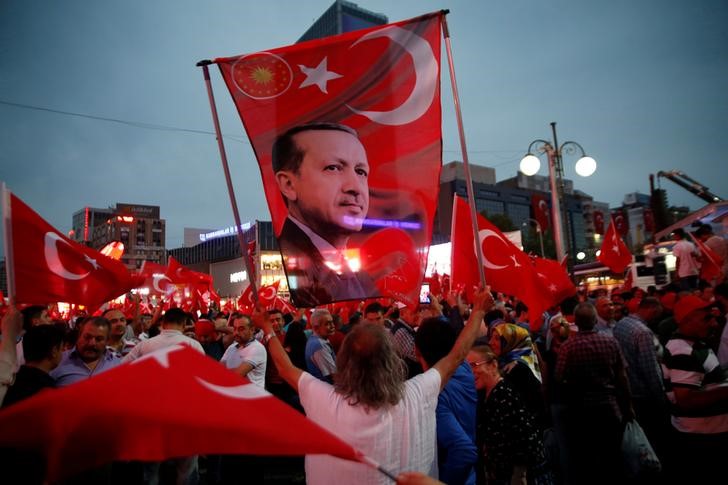By Tuna Yilmaz and Senay Serefoglu
2021 was a year with rising inflation and an economic slowdown. If the recovery in inflation in the first half of the year was due to base effects compared to the drop at the start of the pandemic, disruptions in the supply chain and a rise in commodity and food prices in the second half led to continued rising consumer and producer prices. While the rise is anticipated to sustain in the first quarter of 2022, it is expected there may be divergences due to monetary and fiscal policy from the second quarter and beyond.
In 2021, many central banks in developing nations increased interest rates due to high inflation. There were also some that avoided hiking rates, but the only central bank to cut interest rates during this period was the Turkish central bank (CBRT). This even though Turkey is one of the countries with the highest inflation, interest rates, and risk premia.
The tension between the CBRT and the Turkish government first appeared in 2013. President Erdoğan has dismissed central bank governors on numerous occasions because he did not find higher interest rates permissible and saw them as an obstacle to investments.
Financial markets welcomed the appointment of Governor Naci Ağbal in November 2020. Ağbal implemented tight monetary policy and there was a decline in the exchange rate. However, even though there was a rapid rise in the US bond yields in February and March which put pressure on assets of developing countries in those months, there was no negative divergence in the Turkish lira like there is today. Ağbal’s continued interest rate hikes resulted in his dismissal, and caused the markets to lose faith that the central bank was operating independently.
It is also necessary to mention the period before the current governor, Şahap Kavcıoğlu. Lütfi Elvan, who was appointed finance minister after Berat Albayrak’s resignation was generally accepted by the markets. However, he was also dismissed because he did not support the government’s policy stance.
The Turkish lira, which had recovered in the November 2020 to March 2021 period, began to weaken as Kavcıoğlu, who supported low interest rates, assumed the central bank governorship. Although the interest rate was kept constant until the September meeting, both Erdoğan’s statements and the markets expectation of interest rate cuts at each meeting weakened the lira.
As we arrived in September, inflation in almost every country hit its highest levels in years, while the impact of the pandemic reared its head again amid new variants. Countries also faced problems due to global supply chain issues. During this period, the CBRT signaled an interest rate cut with its focus moving from headline to core inflation. The lira accelerated losses with Erdoğan stating that “interest rates should be even lower.”
In November, the rise in USD/TRY accelerated as the interest rate cuts took effect and the situation was described as a “war”. While it was not known who was fighting what, a new economic model was discussed. Every speech caused further depreciation in the lira, because the main objective was not inflation.
What is the plan and will it address inflation?
Until the end of the first quarter of 2022, the current policy will continue and the Turkish Central Bank will not hike interest rates. Investments are expected to create a surplus in exports, higher tourism revenues and low interest on debts.
How should it be read that there is no strategy to reduce inflation in the new plan while the priority of the central bank is to ensure price stability? How can it be believed that the economic plan will proceed in a healthy way?
If President Erdoğan persists with this approach, by the end of the first quarter inflation could be approaching 30%. Ultimately, it seems inevitable that an increase in interest rates will be required at some point in the future, but will this be with a new central bank governor or the incumbent?
Since the CBRT has stepped away from the global risks and its own inflation target, it may be necessary to act with aggressive interest rate hikes, but until this period, the rise in USD/TRY may continue.
2021 is not over yet but USD/TRY exceeded 18.00 in December and had risen over 100% before Erdoğan’s recent measures. A similar deterioration was experienced in the 2001 crisis, the result of political intervention that had a negative impact on the economy.
While the markets prefer monetary and fiscal policy in line with economic fundamentals, they also seek policymakers with the authority to make independent decisions. If Turkey applies the right policy, with the right people, at the right time then the economy can benefit. The biggest problem facing the economy right now is that those conditions are not in place.
2022 is expected to be a year of high inflation in Turkey. Unfortunately, a year with runaway inflation will decrease the purchasing power of citizens and the exchange rate will remain volatile. The sooner the current policy is abandoned to focus on inflation, the better.
Read also: Inflation, Omicron, Rate Hikes: What To Expect From 2022
See our full outlook series here.
